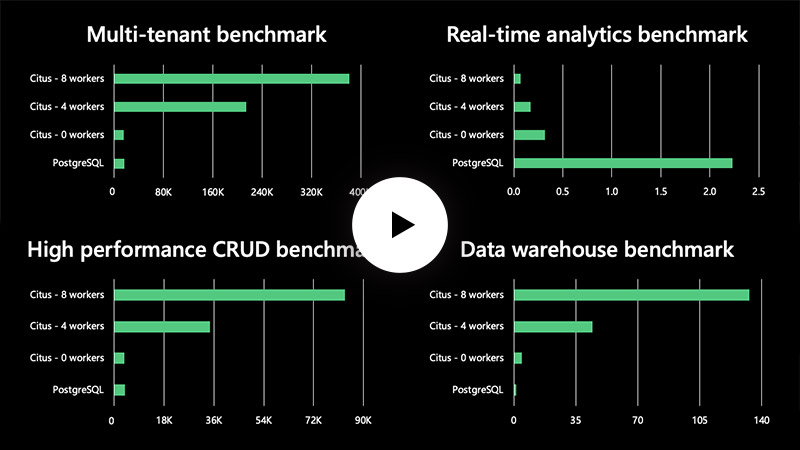POSETTE 2025 is a wrap! 🎁 Thanks for joining the fun. Missed it? Watch all 42 talks online.
Why Use Citus To Scale Out Postgres? One Word: Performance.
Citus distributes and parallelizes Postgres workloads—and is often used as a system of record for SaaS apps and microservices, and as a system of engagement for analytics dashboards and time series data. Often, teams use the Citus database for mixed transactional & analytics workloads, to avoid managing multiple different databases. Others use Citus for high-throughput transactional apps. What Citus users have in common: performance really matters to them.
SaaS teams choose Citus to shard Postgres, to avoid the costs of sharding at the application layer. Developers building analytics dashboards tell us that distributed Postgres is a game changer, especially for time series data. Citus is a fit for many types of data-intensive apps, including geospatial analytics with PostGIS—plus video, web, and operational analytics dashboards. And the Citus columnar feature enables you to achieve compression ratios of 3x-10x or more.
How Citus Distributes Postgres
Watch Marco’s latest talk, inspired by SIGMOD

Learn how Citus works in this talk about Citus table types, the PostgreSQL extension APIs, the Citus query planner, and performance benchmarks comparing a
